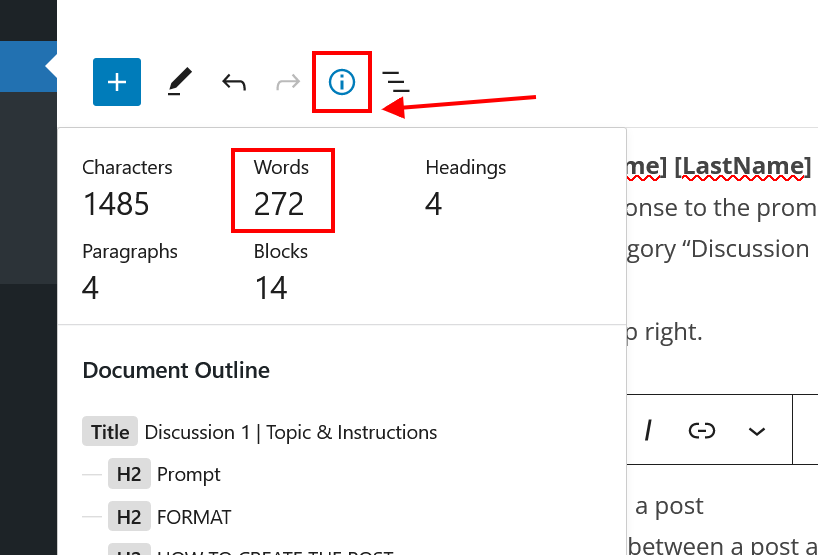This week’s readings and film all address medical or health concerns of different groups, and how those concerns are impacted by social stigma and oppression. In your discussion post for this week, please address the following:
- What surprised you in the readings and film?
- What connections could you find across the readings and film?
- How does the format in which the stories are shared impact your understanding of medical oppression and/or other aspects of gender we have discussed this semester?
Format Requirements
- Due: Wednesday, April 27, 11:59 pm.
- Written in complete, well-formed sentences & carefully proofread
- Engaged with the assigned text by explicitly referring to and/or citing them
- 400 to 500 words. Longer, but not shorter, posts are fine. To view your word count, click the info symbol at the top of the post draft!

How to Create the Post
- 1) Click on the black plus sign in a white circle at the very top of the site (in the black bar) to start the post draft:

- 2) In the title box, type the title “[FirstName] [LastName] Discussion 12“.
- 3) In the body of the post, type your response to the prompt.
- 4) On the right side, choose the post category “Discussion 12.” Your post will not publish without a category.
- 5) Click the blue Publish button on the top right.
More Help:
- Here is a video tutorial on how to publish a post.
- If you want to understand the difference between a post and a comment, see this help document.